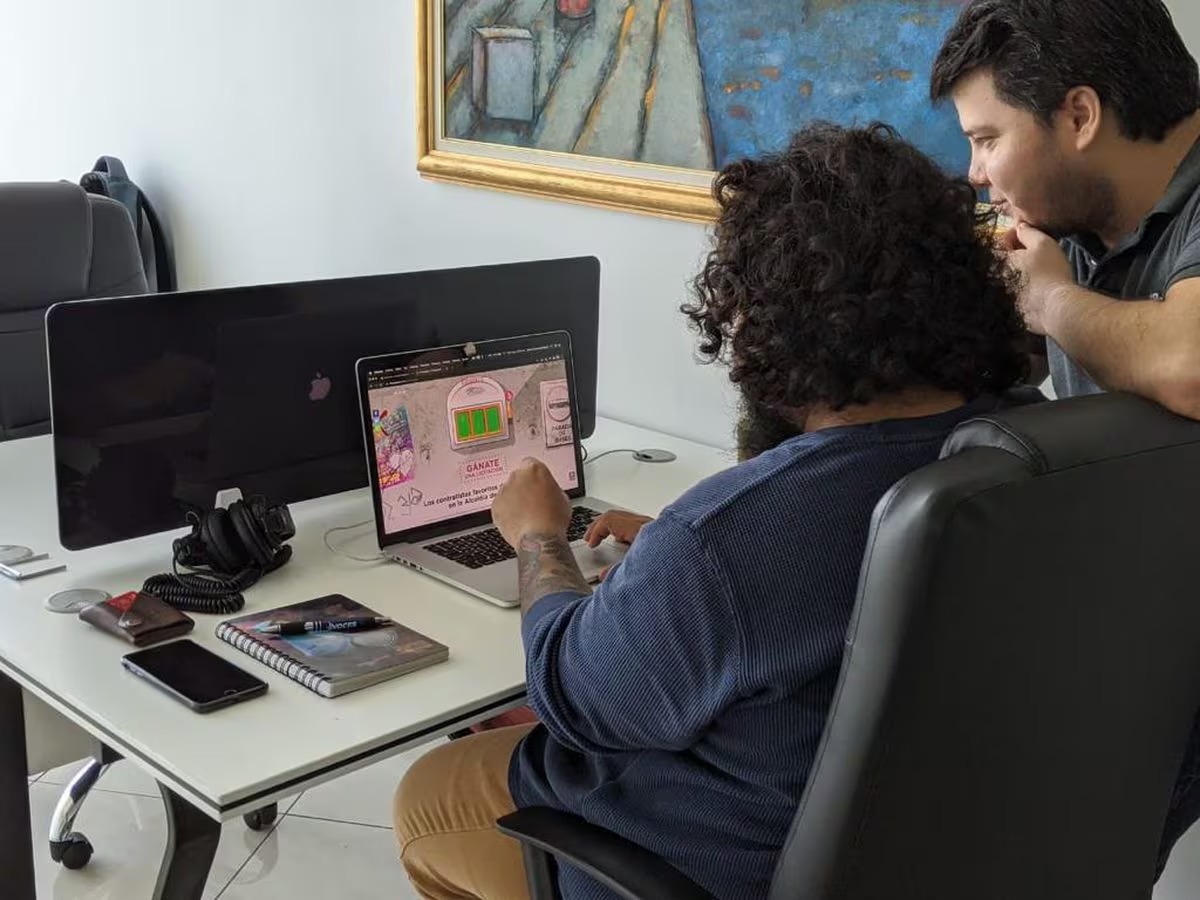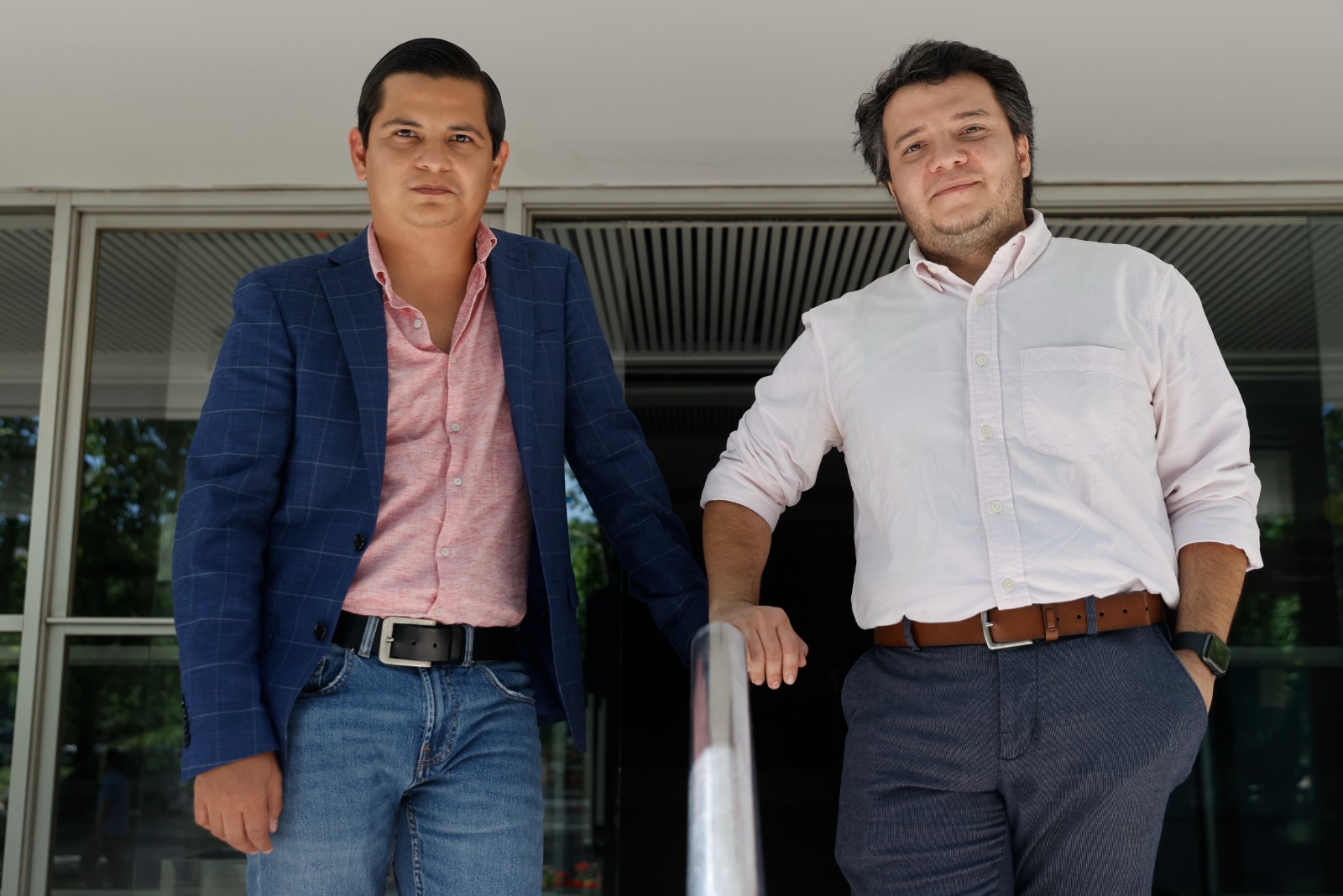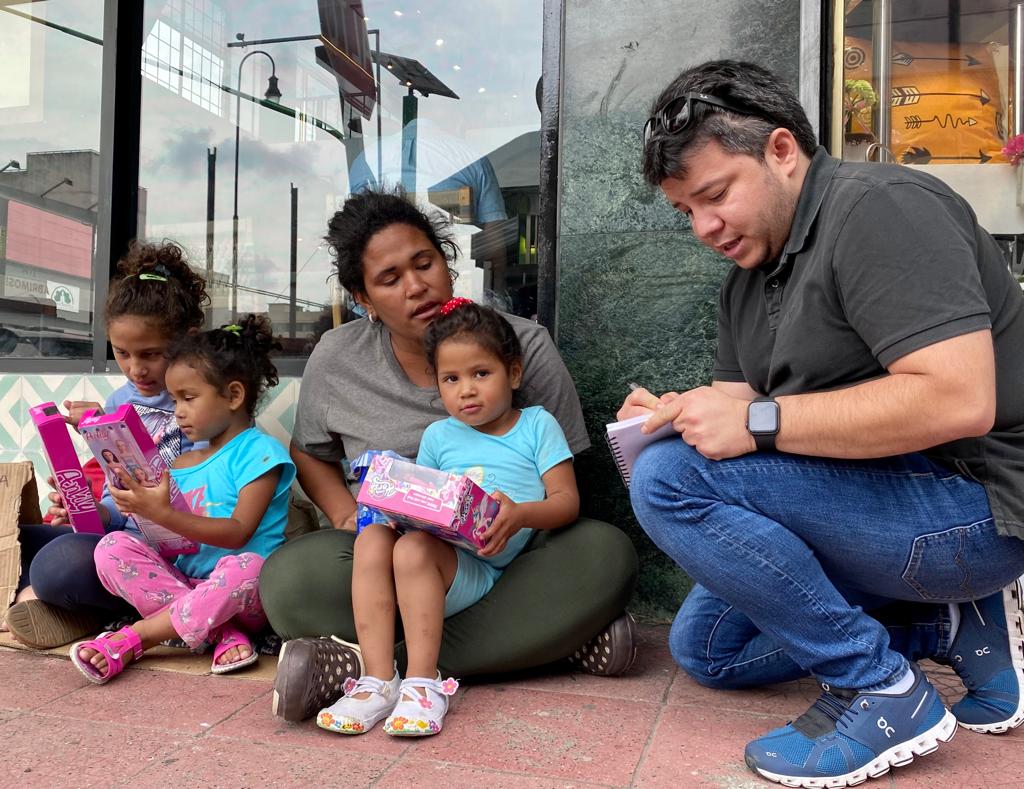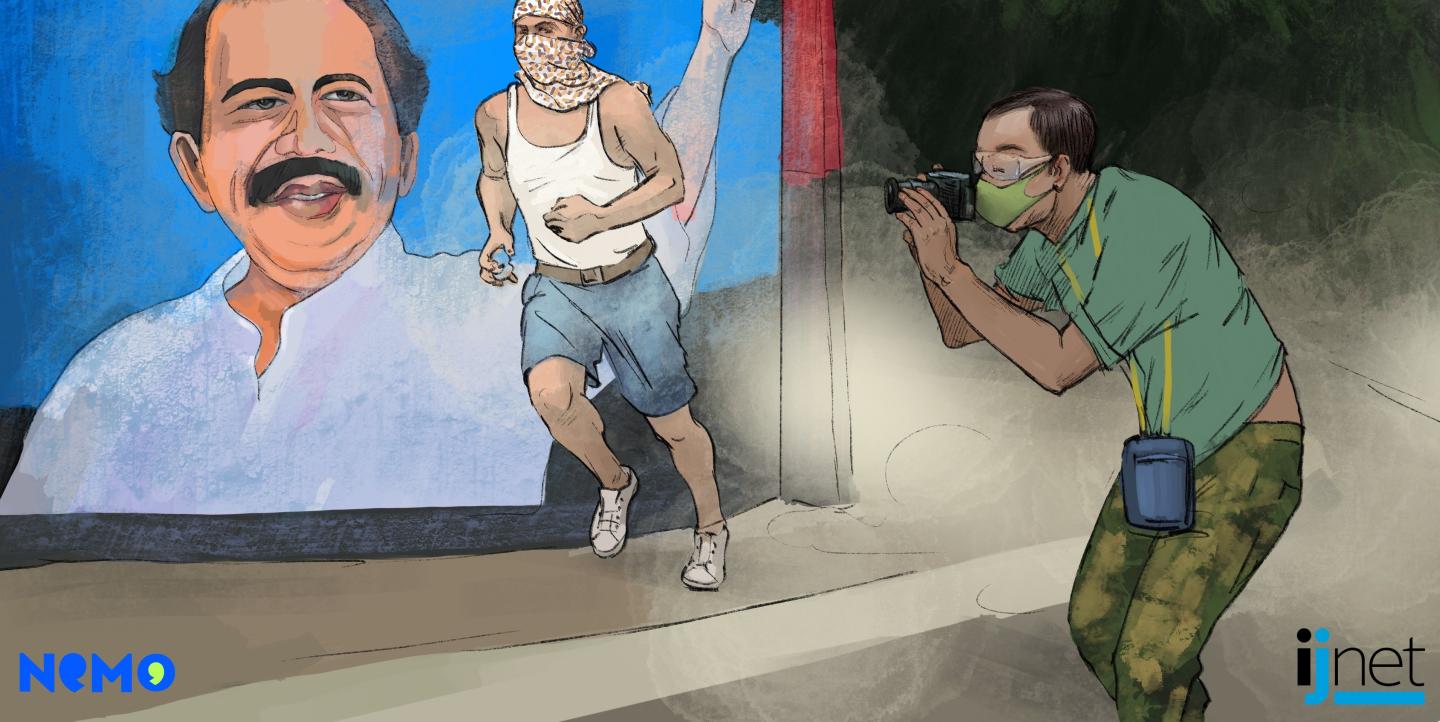This resource is part of our Exiled Media Toolkit, produced in partnership with the Network of Exiled Media Outlets (NEMO), and with the generous support of the Joyce Barnathan Emergency Fund for Journalists.
In 2020, Nicaragua contended not just with the COVID-19 pandemic, but also intensified repression from the administration of Daniel Ortega in response to a 2018 social uprising against corruption and human rights abuses.
Against this backdrop, a team of four journalists with a hunger for in-depth journalism took steps to hold power to account and tell stories in innovative ways. They launched Divergentes, a new digital outlet to cover and reach Nicaraguan and other Central American communities. “Everyone was saying ‘are you crazy?’ because we all quit our permanent jobs and jumped into the void,” said Wilfredo Miranda, the outlet’s co-founder and editorial coordinator.
Divergentes’ investigations into government corruption quickly earned the newsroom national and international recognition. But in 2021, the government’s attorney general began to summon independent journalists and news organizations to court as part of an investigation into the Violeta Barrios de Chamorro Foundation for Reconciliation and Democracy, a nonprofit dedicated to freedom of expression for alleged money laundering. Cristiana Chamorro, who was an opposition presidential candidate at the time, and the chair of the foundation, was placed under house arrest, and over 20 journalists were questioned about their connection to the nonprofit.
Miranda was among the journalists targeted in June of that year. “I was threatened with eight years in prison with the Cybercrime Law, a law with which the government decides whether what someone publishes is fake news,” he said.
Immediately after appearing in court, still wearing the same clothes, Miranda fled to Costa Rica. He brought with him only his computer. More than 30 of his colleagues were similarly forced to leave the country, joining the over 200 journalists that have fled Nicaragua since 2018.
Divergentes had become an outlet in exile – the latest in an exodus of independent newsrooms across Latin America. Today, Divergentes operates with a team of about 20 people based in Costa Rica, Mexico and the U.K.
Miranda shared insights into how his team has navigated the challenges they have faced reporting from exile:
Getting started in Costa Rica
The first task on the agenda for the exiled Divergentes newsroom was to re-establish as a legal entity in its new host country. The team, with the help of lawyers, decided to form an association, defined in Costa Rica as a nonprofit entity comprising people with a common purpose. An association requires 10 members, including three residents or nationals of the country.
The process cost Divergentes about US$1,000 and took roughly eight months. It was a necessary step to be able to operate legally in the country, open bank accounts, and apply for international funds.
Costa Rica is significantly more expensive than Nicaragua, which has placed financial stress on the outlet. Divergentes can’t afford administrative personnel, as a result: the team has made do by having all staff, including reporters, TikTok producers, designers, programmers and social media managers, take on aspects of this workload. Miranda, for example, seeks out grant funding for the newsroom, on top of the research and reporting he carries out as the editorial coordinator.

Measuring impact
Measuring journalism’s impact in Nicaragua is challenging, Miranda explained. Journalists can’t expect that exposing corruption, for instance, will bring people to justice.
Website and social media metrics can offer insights into how many people are reading their articles, but Divergentes measures impact mainly by how people start discussions around their reporting. “Every time we do investigations, many national media – especially international media – review our investigations,” Miranda said. “I think this is one of our great impacts.”
Divergentes reports on countries across Central America, but its primary focus is Nicaragua, where 70% of its audience resides. Nicaragua is the only country in the Western hemisphere that doesn’t have any print newspapers, and practically all media is controlled by the state.
“There is an enormous need for the population to consume media with no propaganda – media that they consider informs and provides them with useful journalism for their lives,” Miranda said.
Divergentes’ bread and butter is investigative and narrative long-form journalism, but it also publishes fact-checks, cartoons and podcasts. The outlet disseminates its content via newsletters and on social media – on TikTok, Instagram, Threads, X and YouTube.

Protecting sources and journalists
Divergentes’ investigative work touches largely on human rights violations, and it seeks to build foundations of historical memory through storytelling. Determining how to track down accurate information without putting the lives of sources and journalists at risk is a major challenge.
“How [do news outlets] reconstruct a massacre if your journalists can't go where the massacre was?” Miranda said. “I'm not saying it’s impossible, but it makes it very difficult, especially when you want to do journalism that is as close to the facts as possible.”
Safety of sources has become a primary concern since February 2023, Miranda said, when the government stripped 94 Nicaraguans, including Miranda, of their citizenship and confiscated their assets. Some of these targets were people already in exile who would provide Divergentes with information from connections inside the country, Miranda said. These sources now fear political repercussions for their contacts in Nicaragua.
The outlet was forced to adapt its methods to keep in touch with contacts in the country and within the government. For instance, the team decided it would grant anonymity to sources to protect them – but not without setting ground rules to ensure the quality of its stories. “We have established rules because we are very interested in safeguarding [our] journalistic rigor,” Miranda said. “If we are going to use anonymous sources, then we have to [cross-check] those anonymous sources at least six times to corroborate what we are saying.”

When working in exile, knowing how to manage your team’s fears is important to establish limits and preserve their livelihoods and that of their families. “Everyone is the owner of their own fear,” Miranda said, citing Pedro Joaquín Chamorro, Nicaragua's “martyr of public freedoms.”
“We don’t want more martyrs,” he continued. “We have a philosophy that before producing any story, the first thing is to safeguard the physical safety and the freedom of each of our reporters.”
If a journalist ever decides to travel to Nicaragua, for instance, they must hide their equipment and complete their work as quickly as possible to avoid attracting unnecessary attention, Miranda said. Ahead of the reporting trip, the team prepares for what to do in case of persecution, planning scenarios including where to hide within the country and how to leave safely.
Journalists' mental health is an issue, too. After five years of reporting on human rights violations while facing continued government harassment and repression themselves, there are journalists who have begun to lose hope and fallen into emotional exhaustion.
“When every day you have a fire that you have to put out in the newsroom, it's very easy to get lost. The easiest thing is to start solving and stop publishing,” Miranda said. “At Divergentes, we are trying to deal with that – trying to put out all the fires that are born every day, week, month, year, without stopping publishing a single day.”
Knowing what you want matters
Despite the trials and tribulations, Divergentes has grown its audience since moving into exile. Currently, according to Miranda, its website attracts around 250,000 unique monthly visitors, compared to roughly 14,000 in its first few months. The traffic comes primarily from Nicaragua, El Salvador and the U.S.
Through its coverage of Nicaragua, the Divergentes team has gained valuable experience that it shares with journalists reporting on authoritarian regimes in neighboring countries such as El Salvador, Guatemala and Honduras. The outlet has also established partnerships and collaborated with other exiled media outlets to shed light on cross-border issues. This has been crucial for expanding its audience and reach.
It’s critical that outlets forced into exile identify the kind of work they want to do, the resources at their disposal and who they can turn to for support, Miranda said. “What added value can I give my audience?” Miranda urged colleagues to consider. “Having your own voice is what makes you different and, in a certain way, it will guarantee that you as a medium survive.”
Launching and running an outlet in exile demands significant time and work. “Understand that at the beginning you will be doing it all,” he added. “You are going to be a journalist, you will write reports, you will take pictures, you will deal with people – everything.”
When challenges arise, reflecting and knowing the reasons behind why you’re doing the work will be key, Miranda said. “Why keep doing this?” Miranda said he often asks himself. “Because of the commitment to one's country and above all, a dedication to having a free Nicaragua in democracy, in freedom, with rights for all, with less inequality.”
Photo credits: Divergentes.
Aurora Martínez is a former communications intern at ICFJ. Originally from Nicaragua, she is currently a journalism student at the University of Florida.

